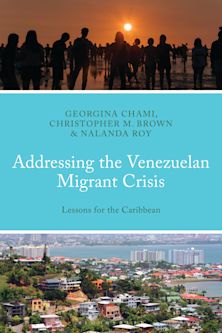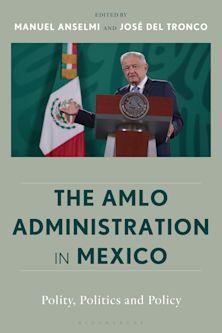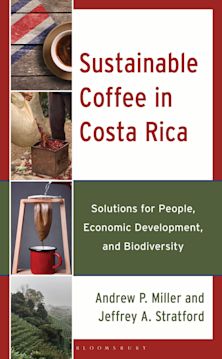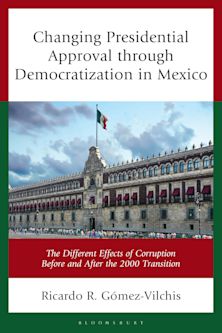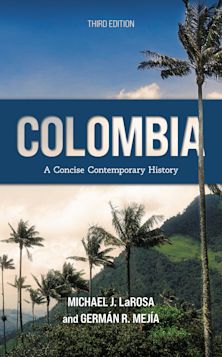- Home
- ACADEMIC
- Politics & International Relations
- Latin American Politics
- Cuban Foreign Policy
Cuban Foreign Policy
Transformation under Raúl Castro
- Textbook
Cuban Foreign Policy
Transformation under Raúl Castro
- Textbook
Inspection copy added to basket
This title is available for inspection copy requests
Choose your preferred format. EU customers: we regret we cannot currently supply print inspection copies via the website but ebooks are available.
Please note ebook inspection copies are fulfilled by VitalSource™.
Buy from Bloomsbury eTextBooks
You are now leaving the Bloomsbury Publishing website. Your eBook purchase will be with our partner https://www.vitalsource.com.
Your credit card statement will show this purchase originating from VitalSource Technologies. They will also provide any technical assistance you might require.
You must sign in to add this item to your wishlist. Please sign in or create an account
Description
This volume illustrates the sweeping changes in Cuban foreign policy under Raúl Castro. Leading scholars from around the world show how the significant shift in foreign policy direction that started in 1990 after the implosion of the Soviet Union has continued, in many ways taking totally unexpected paths—as is shown by the move toward the normalization of relations with Washington. Providing a systematic overview of Cuba’s relations with the United States, Latin America, Russia, Europe, the Middle East, Asia, and Africa, this book will be invaluable for courses on contemporary Cuba.
Table of Contents
1. Historical Introduction to Foreign Policy under Raúl Castro
John M. Kirk
Part I: Key Issue Areas
2. The Defense Contribution to Foreign Policy: Crucial in the Past, Crucial Today
Hal Klepak
3. Cuba’s International Economic Relations: A Macroperspective on Performance and Challenges
H. Michael Erisman
4. The Evolution of Cuban Medical Internationalism
John M. Kirk
Part II: Cuba’s Regional Relations
5. Cuba and Latin America and the Caribbean
Andrés Serbin
6. Cuba and Africa: Recasting Old Relations in New but Familiar Ways
Isaac Saney
7. Cuba and Asia and Oceania
Pedro Monzón and Eduardo Regalado Florido
8. Cuba and the European Union
Susanne Gratius
9. Cuba, Oceania, and a “Canberra Spring”
Tim Anderson
Part III:Cuba’s Key Bilateral Relations
10. The United States and Cuba
William LeoGrande
11. Canada and Cuba
John M. Kirk and Raúl Rodríguez
12. Spain and Cuba
Joaquín Roy
13. Venezuela and Cuba
Carlos A. Romero
14. Brazil and Cuba
Regiane Nitsch Bressan
15. Russia and Cuba
Mervyn Bain
16. China and Cuba
Adrian H. Hearn and Rafael Hernández
Part IV: Retrospective and Prospective Views
17. Conclusion
H. Michael Erisman and John M. Kirk
Index
About the Contributors
Product details
| Published | 27 Apr 2018 |
|---|---|
| Format | Ebook (Epub & Mobi) |
| Edition | 1st |
| Extent | 312 |
| ISBN | 9781442270947 |
| Imprint | Rowman & Littlefield |
| Illustrations | 8 Graphs, 14 Tables |
| Publisher | Bloomsbury Publishing |
About the contributors
Reviews
-
It is perhaps impossible to comprehend recent developments in Cuba without understanding Cuban foreign relations. The latter task has been made much more transparent with the appearance of this splendid book. Rich with original insight and filled with new information, the collection offers perspectives and points of view unavailable anywhere else, from within Cuba and beyond. Erisman and Kirk are to be congratulated for the breadth and depth of their selections.
Louis A. Pérez, Jr., University of North Carolina at Chapel Hill
-
Kirk and Erisman, longtime scholars of Cuban foreign policy, have put together an excellent volume analyzing the impact of President Raúl Castro's principled but pragmatic approach to Cuba's role in the world. Collectively, the contributions demonstrate the continued prominent role that Cuba plays in the world even as it faces renewed hostility from Washington.
Gary Prevost, professor emeritus, College of St. Benedict and St. John's University
-
This work provides a superb overview of Cuban foreign policy in the more pragmatic period since Raúl Castro assumed power. Written by leading experts in their respective fields, this important book is required reading for all those who want to understand Cuba’s foreign relations in the post-Fidel era.
Harry E. Vanden, professor emeritus, University of South Florida












